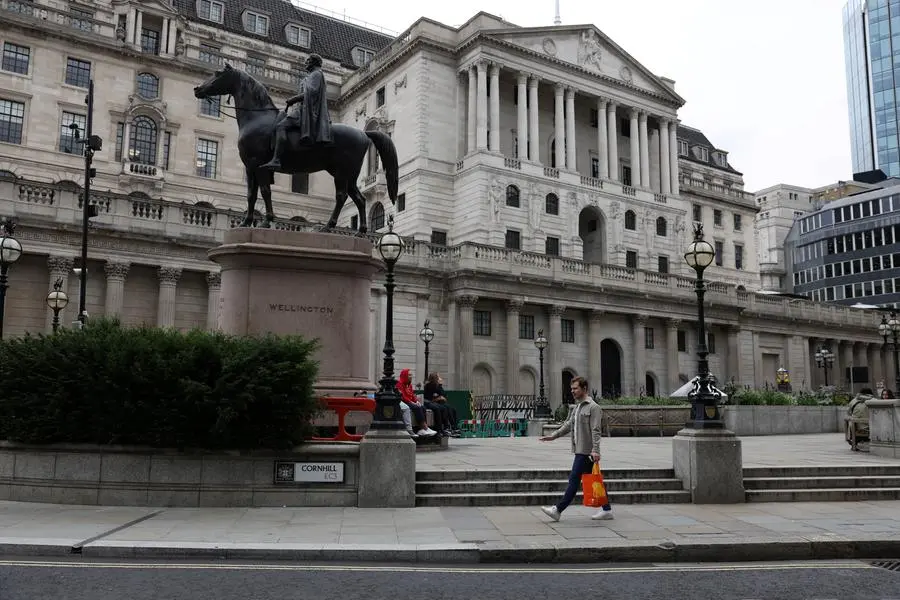PHOTO
LONDON - The Bank of England said on Friday it would raise staff pay by 4% after a 3.5% pay rise in 2023, an increase that matches current inflation but is below what most other big employers have offered.
The increase takes effect this month, and the BoE said it was also maintaining a 1% increase in non-pensionable benefits announced last year.
"The Bank needs to strike a balance between our own budget constraints, the best use of public funds, the challenges of retaining critical skills, and addressing the cost of living pressures facing our staff," a BoE spokesperson said.
The BoE pay deal will not affect Governor Andrew Bailey, who since taking up his role in 2020 has declined increases to his annual remuneration of nearly 600,000 pounds ($772,000).
Both Bailey and BoE Chief Economist Huw Pill have angered trade unions with their past comments about the importance of wage restraint to bring down inflation.
Last year BoE staff - like most British workers - suffered a big real-terms cut in pay. Wages rose by far less than consumer price inflation, which averaged 10.2% in the first quarter of 2023 when the previous BoE pay deal was reached.
This year, inflation was 4% in January and the BoE forecasts it will return to its 2% target soon.
However, workers elsewhere will do slightly better. Figures from XpertHR, which tracks pay deals at major British employers, showed a median pay settlement of 5% for January.
Rapid growth in basic pay - which exceeded 6% in the final quarter of last year - is a key factor dissuading the BoE from cutting interest rates from their current near 14-year high.
Before the pandemic, when inflation was near its 2% target, pay typically rose at an annual rate of around 3%. ($1 = 0.7775 pounds)
(Reporting by David Milliken, editing by Elizabeth Piper)





















